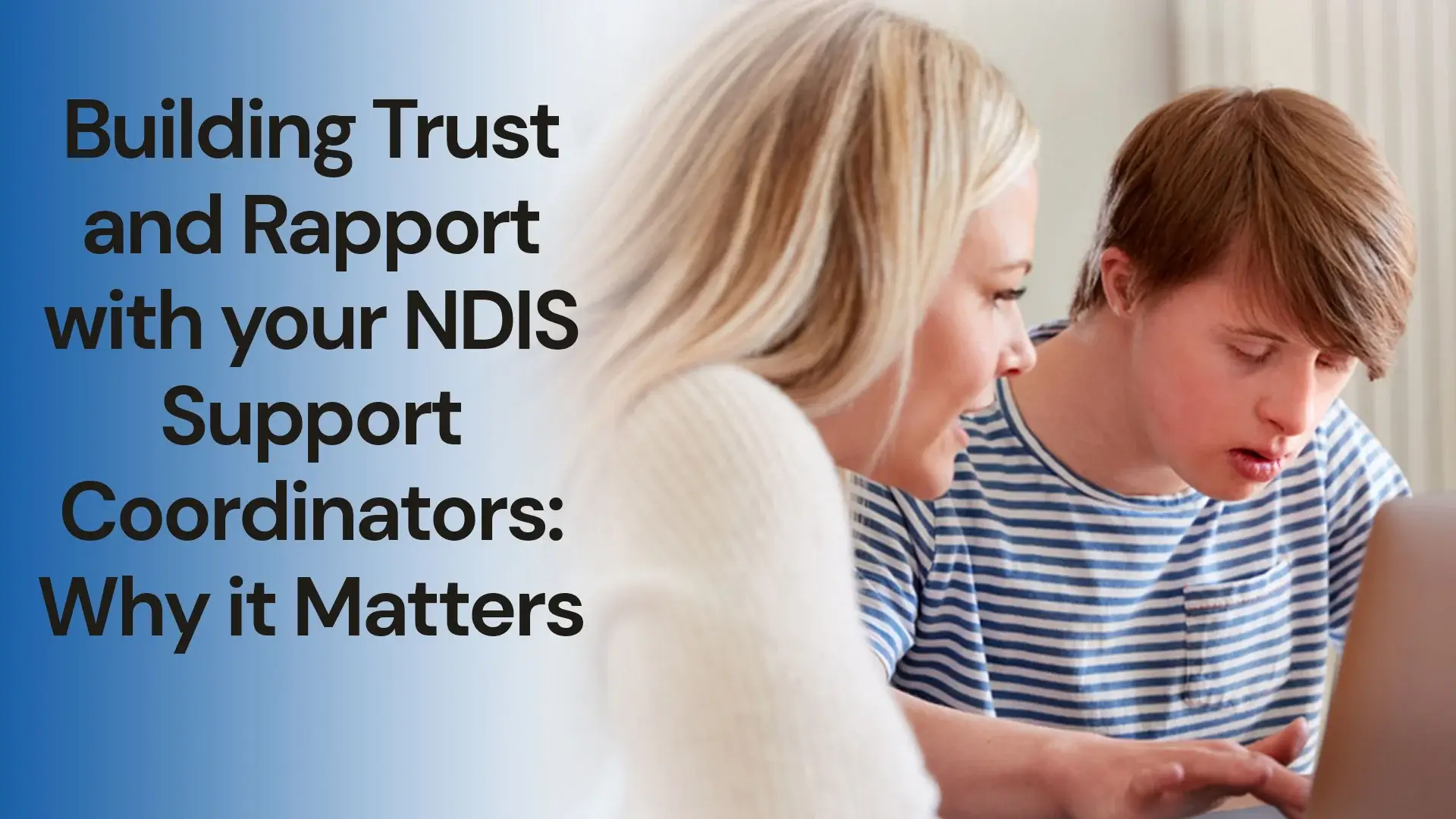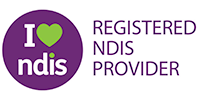Introduction
Support coordinators play a vital role in the lives of individuals receiving assistance through the National Disability Insurance Scheme (NDIS). They are the bridge between participants and the NDIS, helping to navigate the complexities of the scheme and ensuring that the support provided aligns with the participant’s needs and goals.
Building trust and rapport with your NDIS support coordinator is crucial for a successful and fulfilling experience. In this article, we will explore why trust and rapport matter and provide valuable insights on how to foster a strong working relationship with your support coordinator.
Understanding the Role of NDIS Support Coordinators
NDIS support coordinators are professionals who work closely with participants to help them navigate the NDIS system. They have in-depth knowledge of the scheme, its processes, and the available support. Their primary role is to facilitate the implementation of your NDIS plan by connecting you with suitable service providers, assisting in arranging appointments, and monitoring progress towards your goals.
The Importance of Trust and Rapport
Trust and rapport are the foundation of a successful relationship between a participant and their Ndis Support Coordinators. When you trust your support coordinators, you feel more comfortable sharing personal information, discussing your aspirations, and expressing your concerns. Trust enables open and honest communication, leading to better decision-making and improved outcomes.
Effective Communication
Clear and effective communication is vital for building trust and rapport with your support coordinators. Be open about your needs, preferences, and any challenges you might be facing. Actively listen to their advice and suggestions, and ask questions to clarify any doubts. Regularly update them about your progress and provide feedback on the support services received.
Collaboration and shared decision-making
Building a collaborative relationship with your support coordinators allows for shared decision-making. They should involve you in the planning and review process, ensuring that your voice is heard and your goals are prioritised. By working together as a team, you can jointly develop strategies and approaches that align with your aspirations.
Clear Goal Setting
Setting clear and achievable goals is crucial for your support coordination to assist you effectively. Discuss your short-term and long-term objectives with them and ensure that they are included in your NDIS plan. This clarity will help guide the selection of appropriate supports and services tailored to your specific needs.
Building a Supportive Relationship
A supportive relationship with your support coordination involves more than just discussing your NDIS plan. Take the time to build a personal connection by sharing your interests, hobbies, and personal experiences. This rapport creates a friendly and understanding environment, fostering trust and enhancing your overall experience.
Regular check-ins and feedback
Regular check-ins with your support coordinator are essential for ongoing collaboration and progress monitoring. Schedule meetings to review your goals, discuss any challenges or changes in circumstances, and provide feedback on the support services received. This open line of communication ensures that your plan remains relevant and adaptable to your evolving needs.
Respecting Boundaries and Confidentiality
Respect for boundaries and confidentiality is fundamental in any professional relationship. Your support coordinator should handle your personal information with the utmost care and only share it with authorised parties. Likewise, be mindful of their professional boundaries and maintain confidentiality regarding their personal information.
Celebrating Progress and Achievements
Acknowledging and celebrating milestones and achievements is an important aspect of building trust and rapport. Share your successes with your NDIS support coordinators, no matter how small they may seem. Recognising your progress boosts motivation and reinforces the positive relationship between you and your NDIS support coordinators.
Overcoming Challenges Together
Support Coordinators We are there to help you overcome challenges and find solutions. Be open and honest about any difficulties you encounter along the way. By working together, you can explore alternative strategies, identify additional supports if needed, and find ways to overcome obstacles effectively.
Continuous Learning and Professional Development
Trust is built on competence and expertise. A good support coordinator should engage in continuous learning and professional development to stay up-to-date with the latest NDIS policies, services, and best practices. Their commitment to ongoing improvement ensures that you receive the highest quality support and guidance.
Benefits of a Strong Relationship with Your Support Coordinator
Improved Communication
A strong relationship with your support coordinators fosters clear and effective communication. When trust and rapport are established, participants feel comfortable expressing their needs and concerns, leading to improved understanding and alignment. This enables support coordinators to provide personalised assistance and make informed decisions on behalf of the participant.
Personalised Support
Building trust and rapport with your support coordinator allows for a deeper understanding of your unique needs and preferences. This understanding facilitates the delivery of personalised support customised to your specific goals and circumstances. A strong relationship ensures that the support received aligns with your aspirations, promoting a more meaningful and impactful NDIS journey.
Better Advocacy
A support coordinator who trusts and understands your needs can be a powerful advocate. They can effectively represent your interests, ensuring that your goals and preferences are respected within the NDIS system. With a strong relationship, your support coordinators can navigate any challenges or issues, advocating for the best possible outcomes on your behalf.
Practical Tips for Building Trust and Rapport
Effective Communication
Open and effective communication is the cornerstone of building trust and rapport. To enhance communication:
- Be clear and specific about your needs, goals, and expectations.
- Provide feedback regularly to ensure ongoing alignment.
- Seek clarification when needed, and ask questions to gain a better understanding.
- Maintain regular contact with your support coordinator to keep them informed about any changes or challenges.
Active Listening
Active listening is essential for building rapport and understanding. Practice active listening by:
- Paying full attention to what the support coordinator is saying.
- Demonstrating empathy and understanding.
- Summarising and reflecting on the information shared to ensure clarity.
- Avoid interrupting or rushing the conversation.
Mutual Respect
Respect is a fundamental aspect of building trust and rapport. Show respect by:
- Valuing the support coordinator’s expertise and guidance.
- Respecting their time and commitments.
- Recognising and appreciating their efforts in supporting your NDIS journey.
- Treat them as a partner in your support network.
Shared Decision-Making
Involve yourself in decision-making processes to strengthen the partnership. Participate by:
- Expressing your preferences and providing input in the decision-making process.
- Seeking clarification and understanding the implications of different options.
- Collaborating with your support coordinator to find mutually beneficial solutions.
- Embracing shared responsibility for the success of your NDIS journey.
Regular Check-ins
Regular communication and check-ins are essential for maintaining trust and rapport. Establish a routine by:
- Setting regular meetings or calls to discuss progress, challenges, and changes.
- Sharing updates on your goals and aspirations.
- Reflecting on the effectiveness of the support received.
- Addressing any concerns or issues promptly.
Conclusion
Building trust and rapport with your NDIS support coordinator is crucial for a positive and fulfilling experience within the NDIS scheme. Effective communication, collaboration, and clear goal-setting lay the foundation for a strong working relationship. Respecting boundaries, celebrating achievements, and overcoming challenges together further strengthen the bond. By investing in a relationship with your support coordinator, you can maximise the benefits of the NDIS and achieve your goals with confidence.



